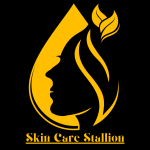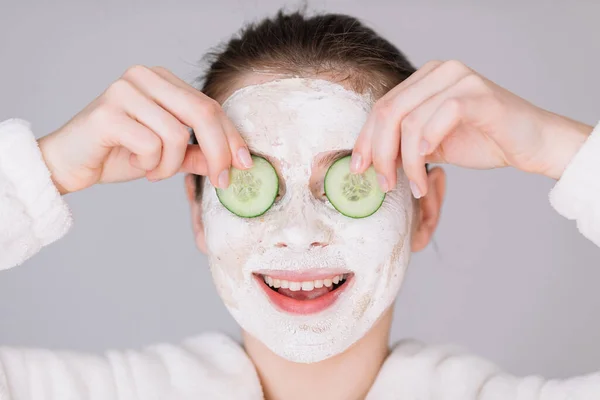“Does skincare actually work to improve your complexion, or is it just a marketing gimmick?” In a world teeming with beauty products promising flawless skin, one burning question lingers: does skincare actually work? As shelves overflow with serums, creams, and masks, and influencers swear by their routines, it’s time to unravel the truth.
Are these products the key to a radiant complexion, or is it all just marketing magic? Let’s delve into the science behind skincare and uncover whether your investment in beauty is truly paying off.
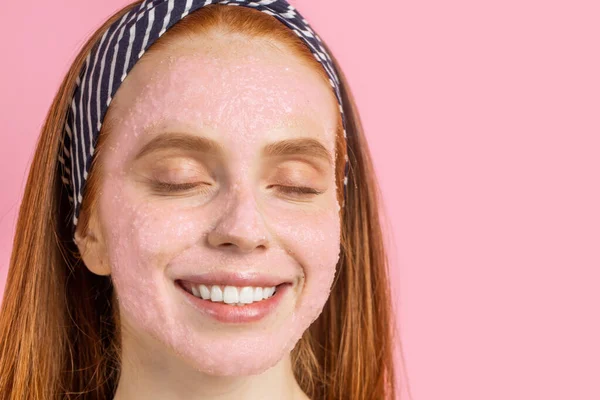
Does Skincare Actually Work
In short, yes, skincare can be effective in improving skin health and appearance. Proper skincare routines tailored to individual skin types and concerns can address issues like acne, dryness, and signs of aging. However, the effectiveness of skincare products depends on various factors, including ingredients, consistency of use, and individual skin response.
Factors Influencing Skincare Effectiveness
Skincare Effectiveness Depends on Ingredients
Skincare products often contain active ingredients like retinoids, hyaluronic acid, and antioxidants, known for their beneficial effects on skin health.
Consistency in Skincare Routine
Regular and consistent use of skincare products is crucial for achieving noticeable results and maintaining skin health over time.
Individual Skin Response to Products
Each person’s skin reacts differently to skincare products. Finding the right products that suit your skin type and addressing specific concerns is essential for effectiveness.
Consultation with Dermatologists
Professional advice from dermatologists can help in selecting the most suitable skincare products and routines tailored to individual skin needs.
Understanding Skincare
Definition and Purpose of Skincare
Skincare is the practice of maintaining and improving the health of your skin. It aims to keep your skin looking youthful, radiant, and blemish-free. The purpose of skincare is to cleanse, protect, and nourish the skin, ensuring it remains hydrated and healthy.
Types of Skincare Products
Cleansers
Cleansers are products used to remove dirt, oil, and impurities from the skin. They come in various forms, such as foaming, gel, and cream cleansers. Using a cleanser helps prevent clogged pores and breakouts.
Moisturizers
Moisturizers hydrate the skin and lock in moisture. They come in lotions, creams, and gels. Moisturizing helps maintain the skin’s barrier function and prevents dryness.
Serums
Serums are concentrated treatments targeting specific skin concerns like wrinkles, dark spots, and fine lines. They are lightweight and contain active ingredients. Using serums can enhance the effectiveness of your skincare routine.
Sunscreens
Sunscreens protect the skin from harmful UV rays. They come in various SPF levels and can be mineral or chemical-based. Sunscreen helps prevent sunburn, premature aging, and skin cancer.
Common Skincare Routines
Morning Routine
A morning skincare routine typically includes cleansing, applying a serum, moisturizing, and using sunscreen. This routine prepares your skin for the day and protects it from environmental damage.
Evening Routine
An evening skincare routine usually involves cleansing, applying a serum, and using a heavier moisturizer or night cream. This routine helps repair and rejuvenate the skin overnight.
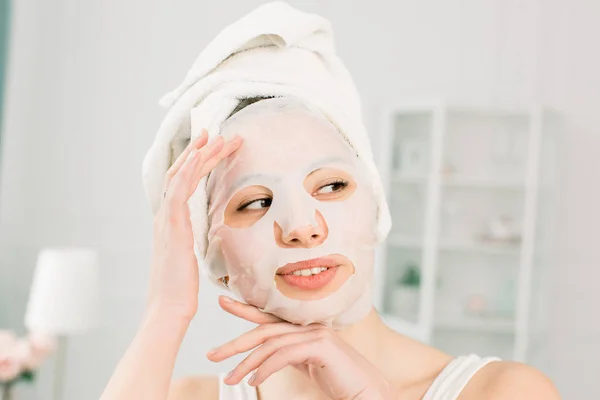
The Science Behind Skincare
How Skincare Products Work
Active Ingredients
Active ingredients are the key components in skincare products. These ingredients target specific skin concerns like acne, aging, and pigmentation. Common active ingredients include retinoids, hyaluronic acid, and vitamin C. Retinoids boost cell turnover. Hyaluronic acid hydrates the skin. Vitamin C brightens and protects against free radicals.
Mechanisms of Action
Skincare products work through various mechanisms. Some products exfoliate dead skin cells, revealing a fresher complexion. Others hydrate the skin, improving elasticity and reducing fine lines. Antioxidants in products neutralize harmful free radicals. Each mechanism addresses different skin issues for better results.
Skin Structure and Function
Layers of the Skin
The skin has three main layers: the epidermis, dermis, and hypodermis. The epidermis is the outermost layer, providing a barrier against environmental damage. The dermis, beneath the epidermis, contains collagen and elastin, which give skin its strength and flexibility. The hypodermis is the deepest layer, composed of fat and connective tissue, providing insulation and cushioning.
Role of the Skin Barrier
The skin barrier is crucial for maintaining skin health. It prevents moisture loss and protects against irritants and pathogens. A compromised skin barrier can lead to dryness, sensitivity, and inflammation. Skincare products often aim to strength in the skin barrier with ingredients like ceramides and fatty acids.
Importance of Formulation and Delivery Systems
The effectiveness of skincare products depends on their formulation and delivery systems. Formulation involves combining ingredients in optimal concentrations and forms.
Delivery systems ensure active ingredients reach their target within the skin. For example, liposomes encapsulate ingredients, enhancing penetration and efficacy. Proper formulation and delivery maximize the benefits of skincare products.
Evaluating the Effectiveness of Skincare Products
Clinical Studies and Trials
Evidence-based Research
Clinical studies provide evidence-based insights into skincare product effectiveness. Dermatologists conduct these studies to verify claims. Evidence-based research helps consumers trust skincare brands. Look for products backed by peer-reviewed studies. Clinical trials often use control groups to ensure accuracy.
Placebo Effect in Skincare
The placebo effect can influence perceived effectiveness. Consumers might see improvements due to belief, not product efficacy. It’s crucial to distinguish real results from placebo effects. Clinical trials help separate genuine benefits from psychological effects. Understanding the placebo effect is vital in evaluating skincare products.
Consumer Experiences and Reviews
Consumer reviews offer valuable insights into product performance. Real user experiences can highlight potential benefits and drawbacks. Positive reviews can indicate effective products. However, individual skin differences can affect results.
Always consider a range of reviews for a balanced view. Consumer feedback often reflects personal satisfaction and perceived effectiveness.

Factors Influencing Effectiveness
Skin Type and Condition
Skin type significantly impacts product effectiveness. Oily, dry, sensitive, or combination skin reacts differently to ingredients. Customized skincare routines cater to specific skin needs. Understanding your skin type helps in choosing the right products. Conditions like acne or eczema require targeted solutions.
Consistency and Proper Usage
Consistency is key in skincare routines. Regular application enhances product effectiveness. Proper usage ensures maximum benefits. Follow instructions for optimal results. Skipping steps can reduce effectiveness. Consistent routines build long-term skin health.
Quality and Concentration of Ingredients
High-quality ingredients boost product efficacy. Concentration levels determine potency. Active ingredients like retinol, vitamin C, and hyaluronic acid are popular. Effective products balance concentration and formulation. Quality control ensures ingredient integrity. Look for reputable brands that prioritize ingredient quality.
Common Misconceptions About Skincare
Instant Results vs. Long-Term Benefits
Many believe skincare products should offer instant results. However, achieving healthy skin requires patience. Consistent use over time is crucial for benefits. Short-term fixes often fail to address underlying issues. Long-term commitment to a regimen yields lasting improvements.
Trust the process and allow products to work gradually. Phrases like “quick fix,” “immediate results,” and “overnight success” often mislead consumers.
Over-the-Counter vs. Prescription Products
Over-the-counter (OTC) products are accessible and convenient. Yet, they may not always be potent enough for severe issues. Prescription products, guided by a dermatologist, offer targeted solutions. They often contain higher concentrations of active ingredients.
Misconceptions about OTC products being inferior can be misleading. Terms like “readily available,” “easily accessible,” and “stronger formulations” frequently arise in discussions.
Natural vs. Synthetic Ingredients
Many assume natural ingredients are inherently safer. However, natural does not always mean better. Some synthetic ingredients are highly effective and safe. The safety of skincare products depends on formulation and testing. Both natural and synthetic ingredients can cause reactions. It’s essential to understand that “organic,” “chemical-free,” and “all-natural” do not guarantee safety.
The Myth of “One Size Fits All” in Skincare
Skincare is highly individual. What works for one person may not work for another. Factors like skin type, concerns, and sensitivities vary greatly. Customizing your skincare routine is essential for effectiveness. The myth of a universal solution is widespread but false.
The Role of Lifestyle in Skin Health
Diet and Nutrition
Foods that Promote Healthy Skin
A balanced diet can significantly improve skin health. Eating foods rich in vitamins and antioxidants helps maintain a glowing complexion. Fruits and vegetables like berries, spinach, and carrots are excellent choices. Omega-3 fatty acids found in fish and flaxseeds support skin elasticity and hydration.
Nuts, especially almonds, are packed with vitamin E, which protects skin from damage. Incorporate these nutrient-dense foods to promote healthy, vibrant skin.
Impact of Hydration
Hydration plays a crucial role in skin health. Drinking adequate water helps maintain skin’s moisture balance. Well-hydrated skin appears plumper and more youthful.
It also aids in flushing out toxins that can cause blemishes. Herbal teas and water-rich foods like cucumbers and watermelons are also beneficial. Keep your skin hydrated from within for a radiant appearance.
Stress and Its Effects on the Skin
Stress can wreak havoc on your skin. High stress levels trigger the release of cortisol, a hormone that can lead to breakouts and inflammation. Stress can also exacerbate conditions like eczema and psoriasis. Incorporating stress-reducing activities such as yoga, meditation, and regular exercise can help manage skin health. Taking time to relax and unwind is essential for clear, calm skin.
Sleep and Skin Regeneration
Quality sleep is vital for skin regeneration. During sleep, the body repairs and rejuvenates skin cells. Lack of sleep can lead to dark circles, dullness, and premature aging. Aim for 7-9 hours of uninterrupted sleep each night. Create a bedtime routine to improve sleep quality. Good sleep hygiene supports healthy, glowing skin.
Environmental Factors
Pollution
Pollution can significantly impact skin health. Airborne particles and toxins can clog pores and cause dullness. Long-term exposure can lead to premature aging and skin conditions. Use skincare products with antioxidants to protect against pollution damage. Regular cleansing helps remove pollutants from the skin’s surface. Shield your skin from environmental stressors to maintain its health.
Weather Conditions
Weather conditions can greatly affect skin health. Cold weather can strip the skin of moisture, leading to dryness and irritation. Hot, humid weather can increase oil production and cause breakouts. Protect your skin by adjusting your skincare routine according to the weather.
Use a heavier moisturizer in winter and lightweight, non-comedogenic products in summer. Stay aware of how weather affects your skin and adapt accordingly.
Professional Perspectives
Dermatologists emphasize the efficacy of skincare through clinical studies and patient outcomes, highlighting ingredients like retinoids, antioxidants, and hyaluronic acid. They stress the importance of tailored routines for varying skin types and conditions.
Skincare experts and estheticians offer insights based on practical experience, recommending products enriched with vitamins, peptides, and botanical extracts. They focus on holistic approaches, including diet, lifestyle, and consistent regimen adherence.
Professional treatments and procedures such as chemical peels, microdermabrasion, and laser therapy play a pivotal role in enhancing skin health. They address specific concerns like acne scars, aging signs, and uneven skin tone with advanced techniques and customized care plans.
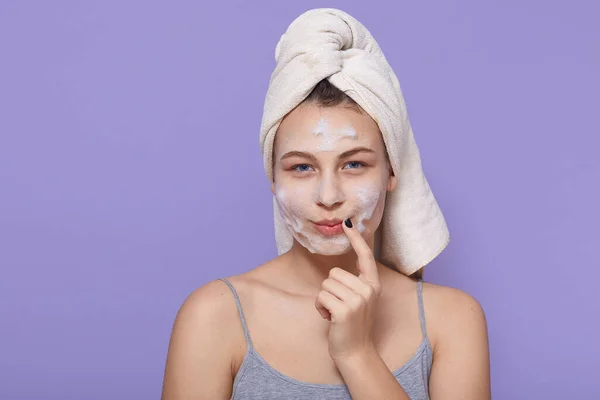
FAQs
How do I know if skincare products really work for me?
Determining skincare effectiveness varies by individual. Look for visible improvements in skin texture, hydration, and reduction of specific concerns like acne or fine lines.
Can skincare products eliminate all skin issues completely?
Skincare can improve skin health and appearance but may not entirely eliminate all issues. Consistent use of suitable products tailored to your skin type is key.
What role does consistency play in skincare effectiveness?
Consistency is crucial. Skincare products need time to deliver results. Regular use ensures ingredients can work optimally over time.
Are expensive skincare products more effective?
Not necessarily. Effectiveness depends on the formulation’s quality, ingredients, and how well they suit your skin. Some affordable products may work just as well.
How long does it take to see results from skincare products?
Results vary based on product type and individual skin concerns. Some see improvements in weeks, while others may need longer, especially for complex issues.
What should I do if skincare products aren’t working for me?
Consult a dermatologist. They can evaluate your skin type, concerns, and current regimen to recommend more suitable products or treatments.
Can lifestyle factors affect skincare results?
Yes, factors like diet, stress, sleep, and environmental conditions impact skin health. Addressing these can complement skincare efforts for better results.
How important is SPF in skincare routines?
SPF is crucial for protecting skin from UV damage, which accelerates aging and increases skin cancer risk. Incorporating SPF into daily routines enhances overall skincare effectiveness.
Is there such a thing as too much skincare?
Yes, excessive products or harsh ingredients can irritate or damage the skin barrier. Simplifying routines with essential products suited to your skin’s needs is often more effective.
What’s the best approach to finding effective skincare products?
Research ingredients, consider your skin type and concerns, and seek recommendations from skincare professionals. Trial and adjustment are key to finding what works best for you.
conclusion
In conclusion, the effectiveness of skincare products hinges on various factors including their formulation, active ingredients, and how well they align with individual skin types and concerns.
While some products may yield noticeable improvements in skin texture, hydration, or clarity, results can vary significantly from person to person. Understanding one’s skin needs, consulting with dermatologists, and maintaining consistency in skincare routines are pivotal in achieving desired outcomes.
Ultimately, while skincare can indeed deliver tangible benefits, informed choices and personalized regimens are key to maximizing its efficacy and achieving healthier, radiant skin.
